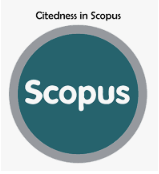Artificial Intelligence in Education: Transforming Assessment and Personalized Learning
DOI:
https://doi.org/10.56404/jels.v4i1.118Keywords:
Artificial Intelligence, Assessment, Personalized Learning, EducationAbstract
The advancement of artificial intelligence (AI) technology has significantly transformed education, particularly in assessment and personalized learning. This study explores the implementation of AI in senior high schools (SMA) in Tulungagung Regency, focusing on its impact on evaluation processes and individualized learning experiences. Using a qualitative approach with a case study method, data was collected through in-depth interviews with teachers and students, classroom observations, and document analysis. The findings indicate that AI-driven assessment enables faster, more objective, and adaptive evaluations by analyzing student performance in real time. AI can identify learning patterns, detect areas requiring improvement, and adjust question difficulty according to individual capabilities. Additionally, AI enhances personalized learning by recommending tailored learning materials, providing interactive content, and adapting instructional methods to suit diverse learning styles. This fosters greater student engagement, comprehension, and motivation. Despite these advantages, several challenges hinder AI implementation. Limited technological infrastructure, insufficient access to digital devices, and unstable internet connectivity in some schools pose significant barriers. Moreover, low digital literacy among educators and students complicates the integration of AI into daily learning activities. Ethical concerns regarding data privacy and security also require attention to prevent misuse of student information. To maximize AI’s potential in education, policymakers must invest in technological infrastructure, expand digital access, and provide ongoing training for teachers and students. With the right strategies, AI can revolutionize education by creating a more inclusive, efficient, and adaptive learning environment, preparing students for future academic and professional success.
References
Aparicio, M. (2016). Educational Technology & Society. Educational Technology & Society, 19(1), 292-307.
Chen, X. (2022). Educational Technology & Society. Educational Technology & Society, 25(1).
Department of Education, Chonnam National University, Gwangju City, South Korea, & Davis, R. O. (2024). Korean in-Service Teachers’ Perceptions of Implementing Artificial Intelligence (AI) Education for Teaching in Schools and Their AI Teacher Training Programs. International Journal of Information and Education Technology, 14(2), 214–219. https://doi.org/10.18178/ijiet.2024.14.2.2042
Huang, J., Saleh, S., & Liu, Y. (2021). A Review on Artificial Intelligence in Education. Academic Journal of Interdisciplinary Studies, 10(3), 206. https://doi.org/10.36941/ajis-2021-0077
Limna, P., Jakwatanatham, S., Siripipattanakul, S., Kaewpuang, P., & Sriboonruang, P. (2022). A Review of Artificial Intelligence (AI) in Education during the Digital Era. Advance Knowledge for Executives, 1(3).
McKenney, S. E., & Reeves, T. C. (2012). Conducting educational design research. Routledge.
Miles, M. B., Huberman, A. M., & Saldaña, J. (2014). Qualitative Data Analysis: A Methods Sourcebook (3rd ed.). SAGE Publications.
Rubin, H. J. (2011). Qualitative interviewing: The art of hearing data. sage.
Saini, D. A., Sharma, Mrs. D., & Tripathi, Mrs. K. (2025). Artificial Intelligence (Ai) In Education: Using Ai Tools For Teaching And Learning Process. Ijireeice, 13(2). https://doi.org/10.17148/IJIREEICE.2025.13206
Selwyn, N. (2024). On the Limits of Artificial Intelligence (AI) in Education. Nordisk Tidsskrift for Pedagogikk Og Kritikk, 10(1). https://doi.org/10.23865/ntpk.v10.6062
Sholeh, M. I., Syafi’, A., Rosikh, F., & Ali, H. (2024). Virtual Reality (VR) as a Learning Tool in The Classroom. Educational Administration: Theory and Practice, 30.
Surachman, A., Putri, D. E., & Nugroho, A. (2024). Transformasi Pendidikan di Era Digital Tantangan dan Peluang. 2(2).
Tejani, A. S., Elhalawani, H., Moy, L., Kohli, M., & Kahn, C. E. (2023). Artificial Intelligence and Radiology Education. Radiology: Artificial Intelligence, 5(1), e220084. https://doi.org/10.1148/ryai.220084
Xia, Q., Chiu, T. K. F., Lee, M., Sanusi, I. T., Dai, Y., & Chai, C. S. (2022). A self-determination theory (SDT) design approach for inclusive and diverse artificial intelligence (AI) education. Computers & Education, 189, 104582. https://doi.org/10.1016/j.compedu.2022.104582
Yin, R. K. (2009). Case study research: Design and methods (Vol. 5). SAGE Publications.
Zhai, X., Chu, X., Chai, C. S., Jong, M. S. Y., Istenic, A., Spector, M., Liu, J.-B., Yuan, J., & Li, Y. (2021). A Review of Artificial Intelligence (AI) in Education from 2010 to 2020. Complexity, 2021(1), 8812542. https://doi.org/10.1155/2021/8812542
















